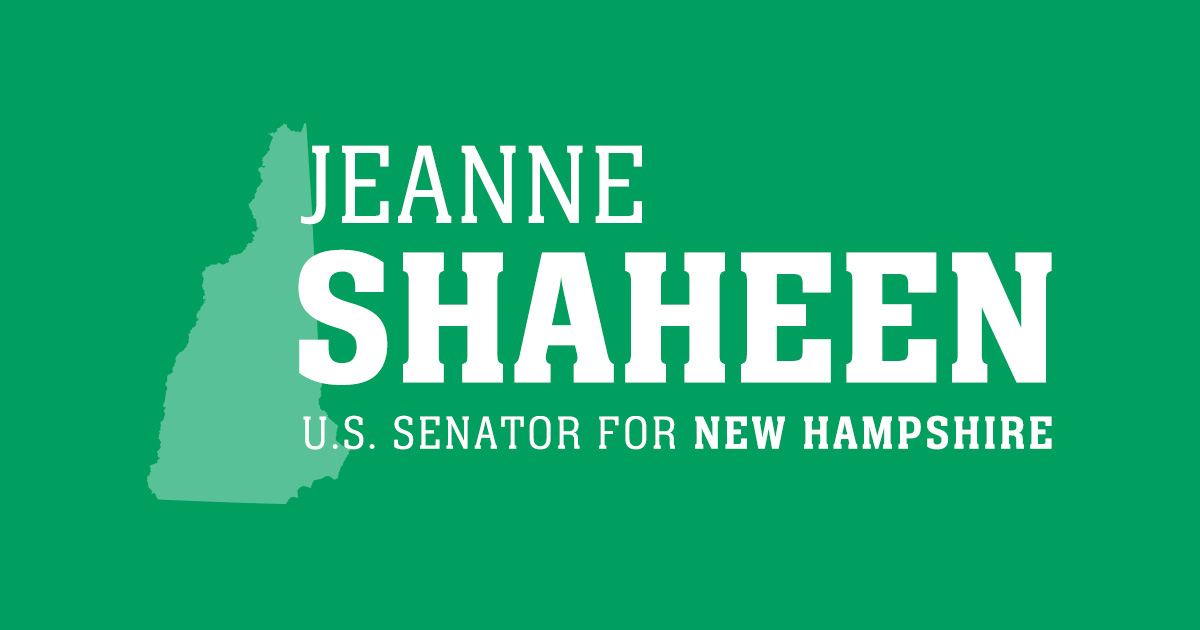Source: United States Senator for New Hampshire Jeanne Shaheen
February 09, 2022
(Washington, DC) – Today, U.S. Senators Jeanne Shaheen (D-NH) and Susan Collins (R-ME) introduced legislation that builds on their bipartisan work to bolster the Provider Relief Fund (PRF), which has served as a lifeline to frontline health care providers who’ve experienced revenue losses and increased demand for their services during the pandemic. Their new bill, the Provider Relief Fund Improvement Act, strengthens support for overwhelmed providers by delaying complex PRF reporting requirements until after the end of the public health emergency, and extending the use of PRF dollars to enhance workplace safety.
To date, the PRF has allocated more than $178 billion in payments to over 410,000 providers across the country. New Hampshire has received more than $360 million to 1,822 providers.
“The Provider Relief Fund has helped health care providers across the nation stay afloat amid unprecedented stress and demand for their services during COVID. We are still in the midst of this pandemic, and now is not the time to divert providers’ focus from their lifesaving work to navigate a maze of complex reporting rules,” said Senator Shaheen. “That’s why I’m partnering with Senator Collins to provide essential relief to health care providers by easing the timeline on cumbersome auditing procedures, as well as enhancing workplace safety through PRF dollars. Ensuring our hospitals, doctors and professionals have the resources they need to respond to the scope of this public health crisis and save lives must be our priority.”
“Over the course of the pandemic, the Provider Relief Fund has been a lifeline to hundreds of Maine hospitals, nursing homes, assisted living centers, and physician practices—particularly in rural areas—that have been on the verge of closing their doors permanently. As health care providers continue to struggle with staffing shortages, financial difficulties, and other challenges, the last thing we should be doing is adding to their burden by imposing onerous paperwork requirements,” said Senator Collins. “I am pleased to once again partner with Senator Shaheen to strengthen the Provider Relief Fund so that medical professionals have the resources they need to focus on delivering quality care to their patients.”
Specifically, the Provider Relief Fund Improvement Act helps health care providers by:
- Extending current reporting and use-of-funds deadlines to the end of the pandemic;
- Ensuring workplace safety improvements, such as security personnel, risk assessments and physical improvements, such as panic buttons and security cameras, are an allowable use of PRF dollars;
- Directing HRSA to distribute any funds remaining in the PRF by either the end public health emergency or March 31, 2022, and;
- Creating an application process for certain providers to receive funds returned in compliance with previous deadlines.
The Provider Relief Fund Improvement Act is endorsed by the American Hospital Association, the New Hampshire Hospital Association and America’s Essential Hospitals. Full text of the bill is available here.
Shaheen and Collins have led bipartisan efforts in the Senate to shore up the PRF to support providers on the frontlines of the pandemic. In September, they welcomed news that $25.5 billion through the PRF and American Rescue Plan (ARP) rural distribution would open after they discovered 25% of allocated PRF funding was unspent and led the push to quickly rectify it. Shaheen also fought to secure a set-aside for rural providers during ARP negotiations, and applauded HHS’ release of $7.5 billion in PRF funding for rural communities last month. During negotiations with the Senate and White House on the American Rescue Plan, Shaheen helped steer efforts to increase funding for the Provider Relief Fund to ensure hospitals, nursing homes and other health care providers on the frontlines have the support they need to keep their doors open and continue to care for Granite Staters and Americans across the country. Shaheen also defended the Provider Relief Fund from being considered as a pay-for amid negotiations on the historic bipartisan infrastructure legislation that cleared the Senate earlier this month.
###
